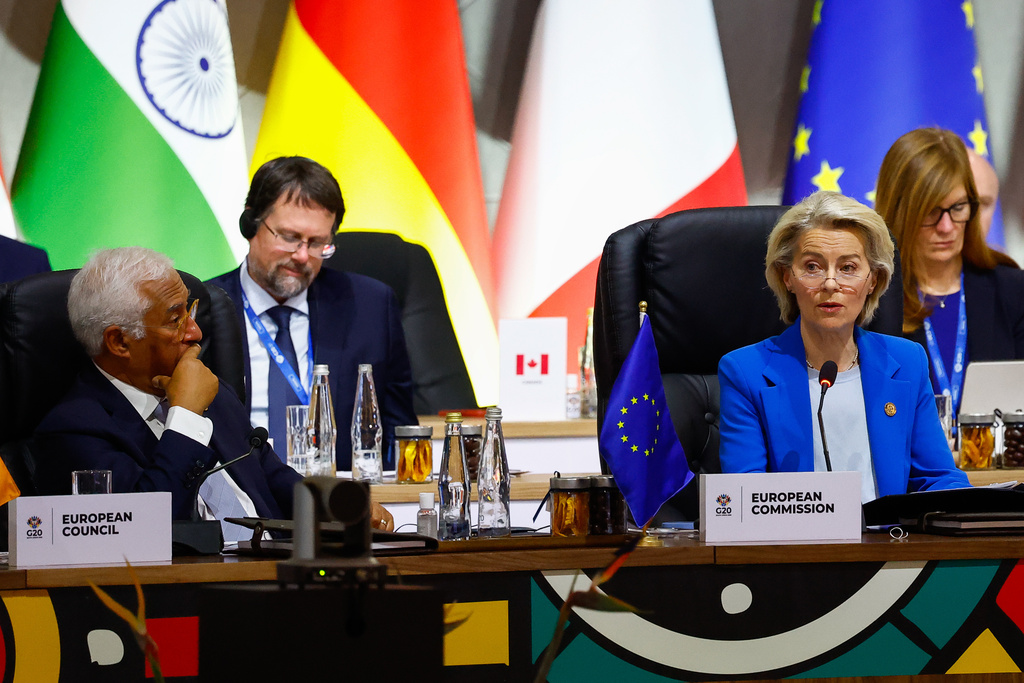Europe Seeks to Rewrite at Least Four Points of Trump’s Peace Plan

European leaders are raising serious objections to several core elements of the Ukraine peace plan drafted by the Trump administration, insisting that at least four provisions must be revised.
The Gaze reports this, referring to Bild.
According to diplomats familiar with the discussions, the most contentious point is the proposed recognition of all of Donbas and Crimea as Russian territory – a concession European governments view as unacceptable and destabilizing.
Officials argue that endorsing Russia’s territorial claims would not only reward aggression but also undermine the basic principles of European security.
Another concern involves the plan’s call for a significant reduction in the size of Ukraine’s armed forces. European leaders warn that such cuts would weaken Kyiv even further at a time when the Ukrainian military already faces a severe numerical disadvantage compared to Russia.
The proposed security guarantees for Ukraine also trigger skepticism. The plan reportedly includes commitments from Russia – assurances European officials dismiss as unreliable in light of past violations.
Diplomats point to the 1994 Budapest Memorandum, under which Ukraine surrendered its nuclear arsenal in exchange for security guarantees that Moscow later disregarded when it invaded.
A fourth disputed element concerns the future of frozen Russian sovereign assets, estimated at around €300 billion. Trump’s plan reportedly envisions channeling €100 billion in American investment into Russia and creating a new U.S.-Russia investment mechanism financed in part by those frozen funds. European officials fear this could undermine Western unity and reverse hard-won sanctions leverage.
In a joint statement released by the European Council, leaders described the U.S. proposal as a “valuable starting point” containing several important elements but warned that the initial draft does not yet meet the standards necessary for a just and lasting peace.
The joint statement was endorsed by a broad coalition of European and transatlantic leaders, including European Council President António Costa, European Commission President Ursula von der Leyen, French President Emmanuel Macron, UK Prime Minister Keir Starmer, German Chancellor Friedrich Merz, Norwegian Prime Minister Jonas Gahr Støre, Canadian Prime Minister Mark Carney, and Japanese Prime Minister Sanae Takaichi.
Costa announced that he has invited the leaders of all 27 EU member states to a special meeting on Ukraine at the EU–African Union summit in Luanda, Angola, on 24 November.
As The Gaze previously reported, the United States is preparing to dispatch a delegation of senior generals to Moscow next week. The move follows Trump’s appointment of Army Secretary Dan Driscoll – a close friend and former classmate of Vice President J.D. Vance – as his new special representative for the negotiations.
Read also on The Gaze: U.S. Floats NATO-Style Security Guarantees for Ukraine in Draft Peace Framework